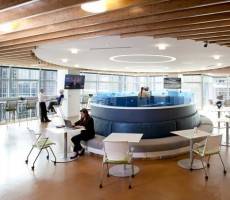November 6, 2014
Two new reports claim firms and employees are out of step on flexible working
 The two latest stones to be tossed into the flexible working maelstrom in the hope of creating a ripple both suggest that employers are out of step with the expectations of their staff when it comes to working hours and conditions. The CIPD launched a new report Getting Smart About Agile Working, at the start of its annual conference in Manchester on 5 November which claims that a third (35 percent) of employees would like to change their working arrangements with nearly half (43 percent) saying they would most like to change the start or finish time of their working day. Meanwhile a separate report from BUPA claims that half of employees of SMEs think their employees underestimate the part that benefits including flexible working have to play in the overall feel of the company, and a similar number (51 percent) believe that not offering such benefits damages an employer’s attractiveness to new recruits.
The two latest stones to be tossed into the flexible working maelstrom in the hope of creating a ripple both suggest that employers are out of step with the expectations of their staff when it comes to working hours and conditions. The CIPD launched a new report Getting Smart About Agile Working, at the start of its annual conference in Manchester on 5 November which claims that a third (35 percent) of employees would like to change their working arrangements with nearly half (43 percent) saying they would most like to change the start or finish time of their working day. Meanwhile a separate report from BUPA claims that half of employees of SMEs think their employees underestimate the part that benefits including flexible working have to play in the overall feel of the company, and a similar number (51 percent) believe that not offering such benefits damages an employer’s attractiveness to new recruits.


























November 6, 2014
Unethical behaviour at work may reflect a blame culture with little trust or integrity
by Sara Bean • Comment, Wellbeing, Workplace